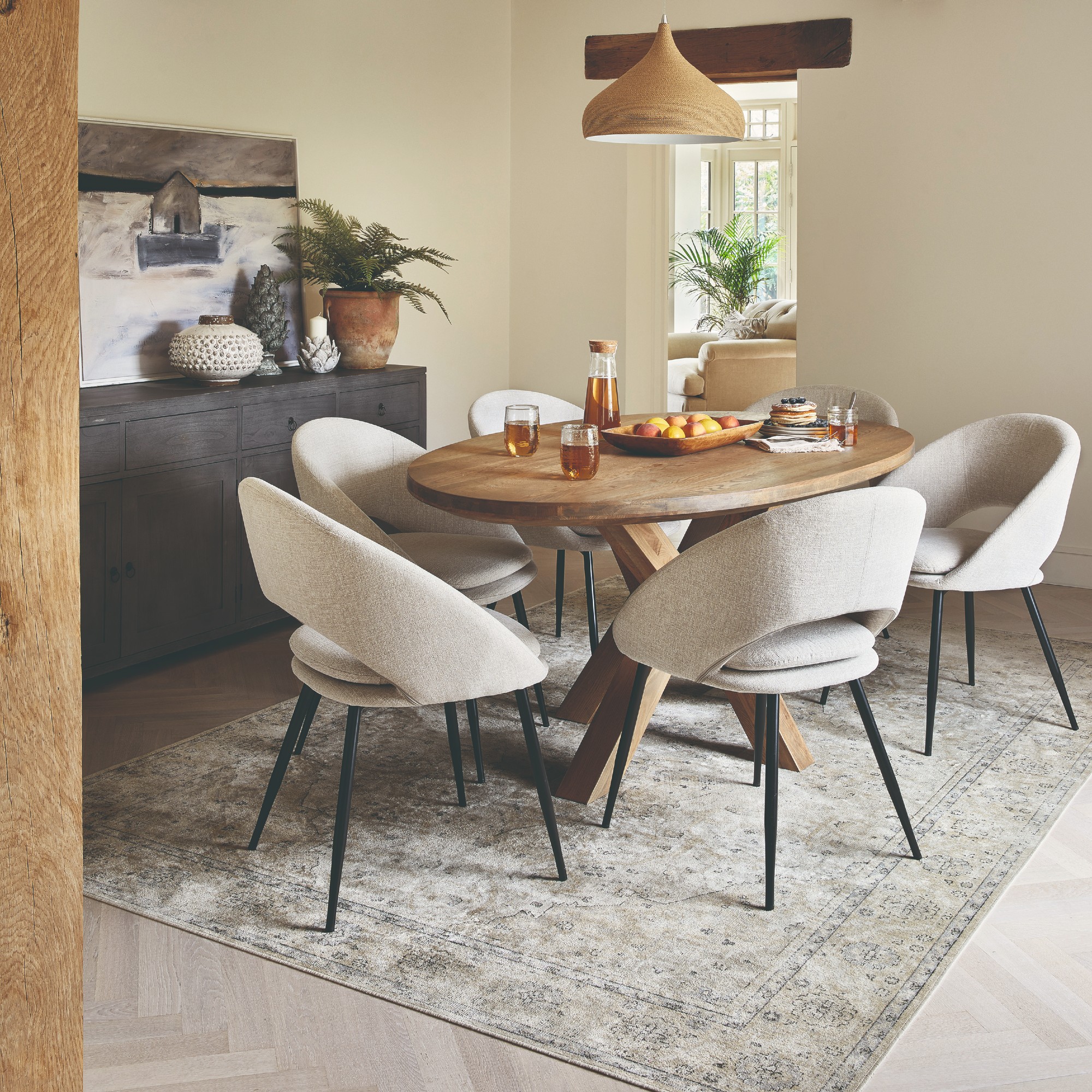
Have you ever wondered how big a dining room rug should be when choosing a floor covering for the dining area? We sure have. Should it offer enough floor covering for the dining table and chairs? If so, how will you know just how much space to leave around the table to accommodate this? And how much space should there be between the edge of the rug and the wall? So many questions that need to be answered.
But luckily, our rug experts have all the answers to all of these questions and even more dining room ideas to add on top. Getting the proportions of your dining room rug right will anchor the space, make your dining room look more expensive, while also ensuring comfort both when you’re seated at the table and when you get up from it.
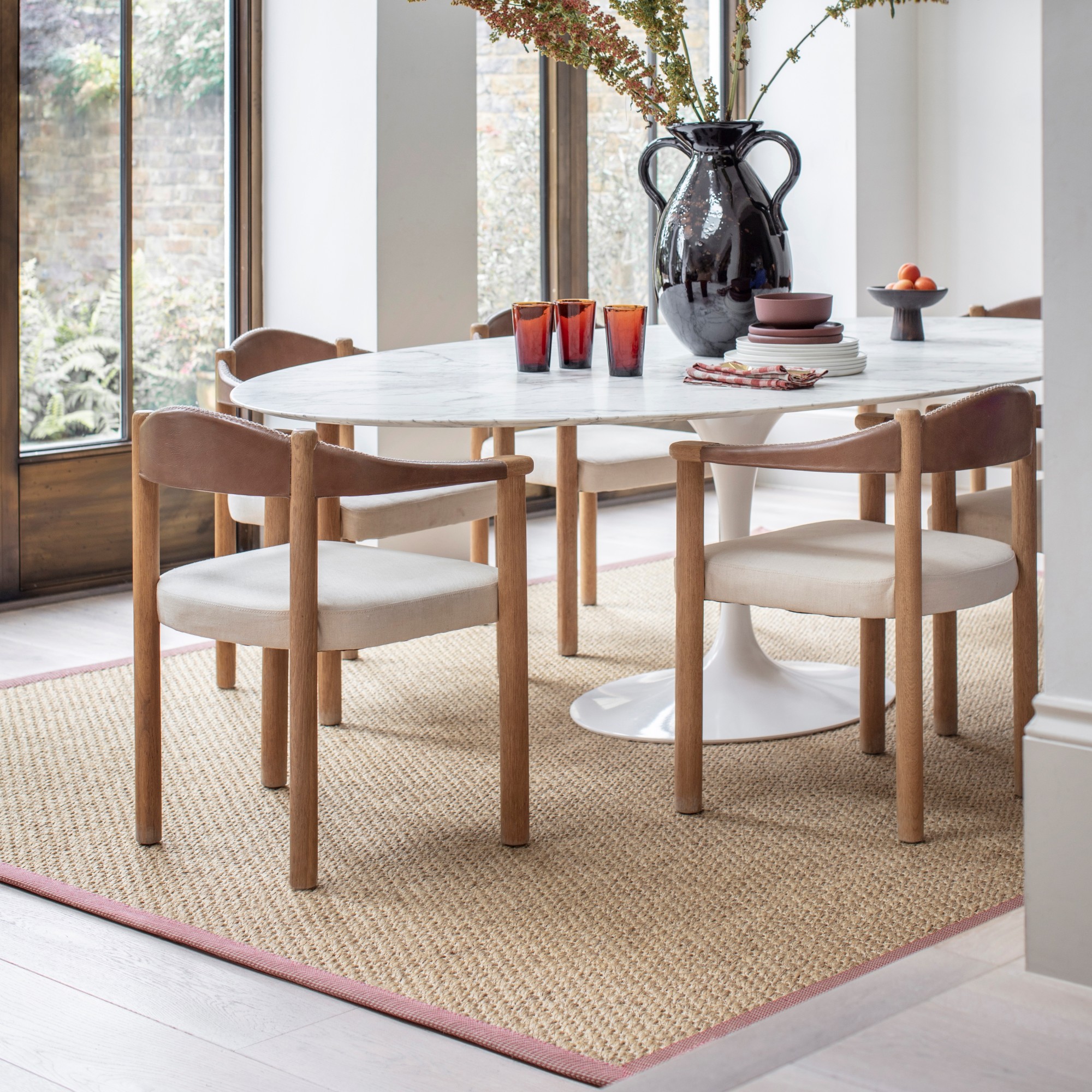
‘A dining room rug can boost the overall style of a room, making it much more homely and inviting,’ says Liam Cleverdon, flooring trends expert at Flooring King. ‘They help protect against damage - making them a great choice for pet-heavy homes or families with children.’
Kirsty Barton, brand storytelling manager at Alternative Flooring, adds, ‘A dining room rug can create a central focal point within the room for the dining table to be positioned and can also help to define zones within an open-plan kitchen diner. Not only great for adding a splash of colour and texture, a rug beneath a dining table will also bring warmth and comfort, especially as we approach the colder seasons.’
And this is the expert-approved key to getting the size of your rug for your modern dining room ideas just right.
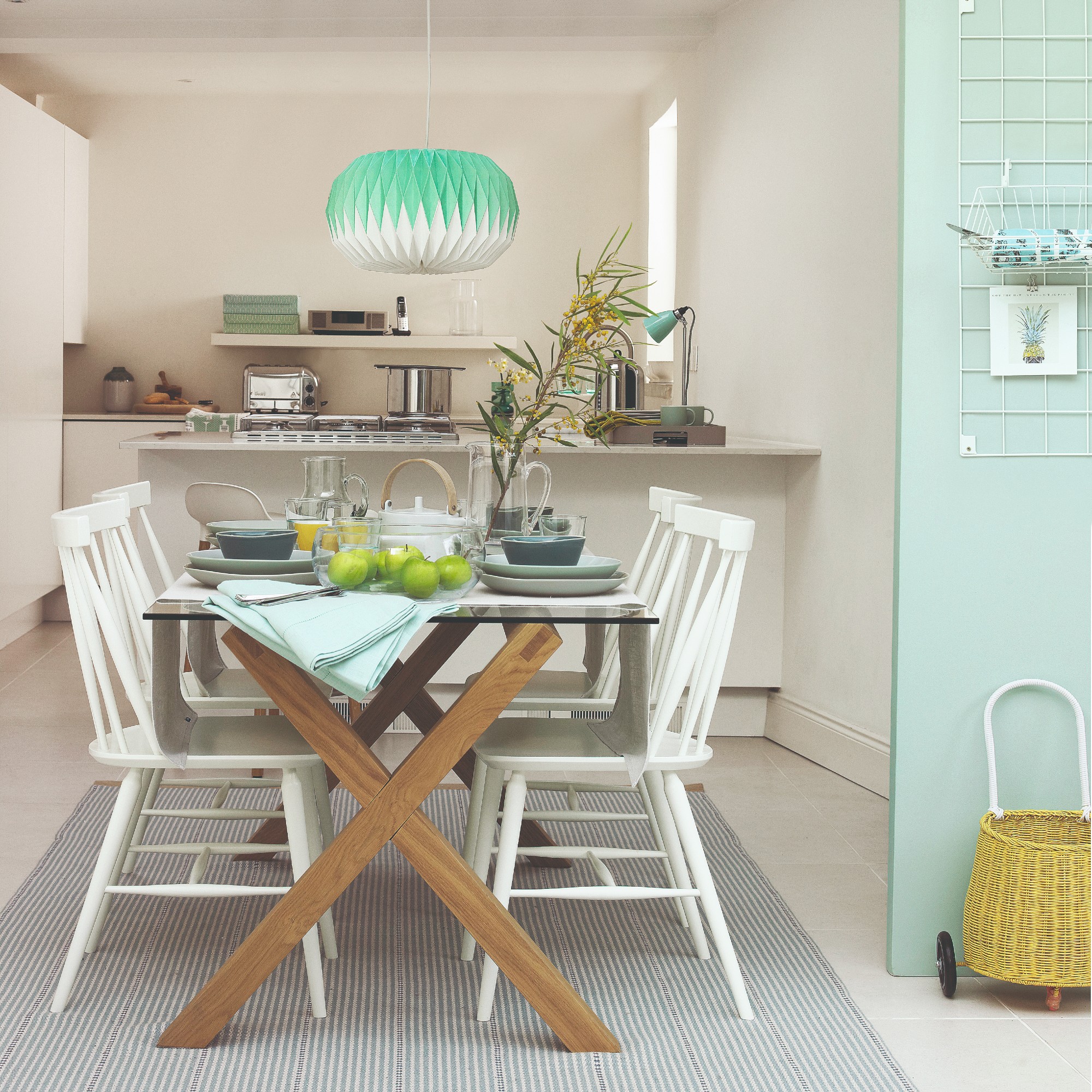
Should dining chairs sit on a rug?
First and foremost, let’s get this out of the way. If you’re wondering whether your dining chairs should sit on top of your dining room rug, then the answer is a resounding yes, they certainly should be for several reasons.
‘A dining room rug should be big enough to accommodate both your dining table and chairs, even when the chairs are pulled out from the table,’ says Daniel Prendergast, director at The Rug Seller. ‘Not only does this protect your floor from drag marks, but also prevents the chair legs from catching on the edges of the rug.’
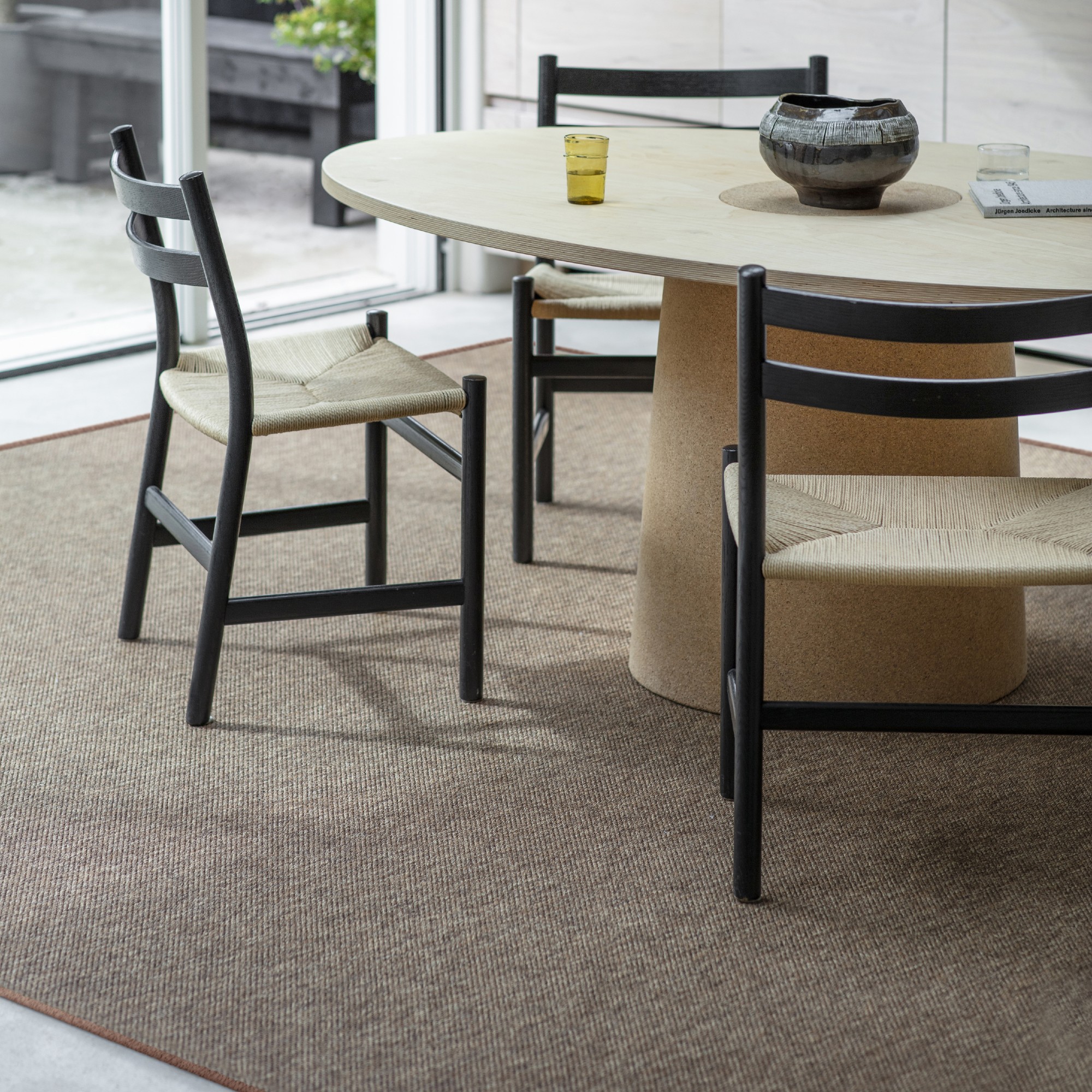
How big should a rug be around a dining room table?
The ideal size of your dining room rug will, of course, depend on the size of your dining room. But also on the size of your table. And there is a specific measurement that experts regularly refer to when choosing the perfect size rug for their dining table.
‘A good rule of thumb is to add around 30 inches to each side of your dining table's dimensions where possible to ensure that the chairs remain on the rug when you are sitting down or getting up without catching on the edges. It's a good idea to measure the dining table and chairs before you buy your new rug,’ Daniel says.

Richard Moore, sales and marketing director at Riviera Home UK, continues with some sizing examples, ‘When selecting a rug, keep the size of your dining table in mind. For a larger table with eight or more chairs, choose a rug around 274 centimetres x 365 centimetres. For smaller, more intimate settings, opt for a smaller rug that frames the table and chairs for a balanced appearance.’
And because the size of the rug is so closely linked to the size of the dining table, the shape of it should be, too. ‘Matching the shape of your rug to the dining table can further complement your dining room’s aesthetic, creating a striking centrepiece that draws your guest’s attention. For example, a round rug under a round table or a rectangular rug under a long, traditional dining table frames the table perfectly and subtly enhances the décor of your dining room,’ Kirsty recommends.
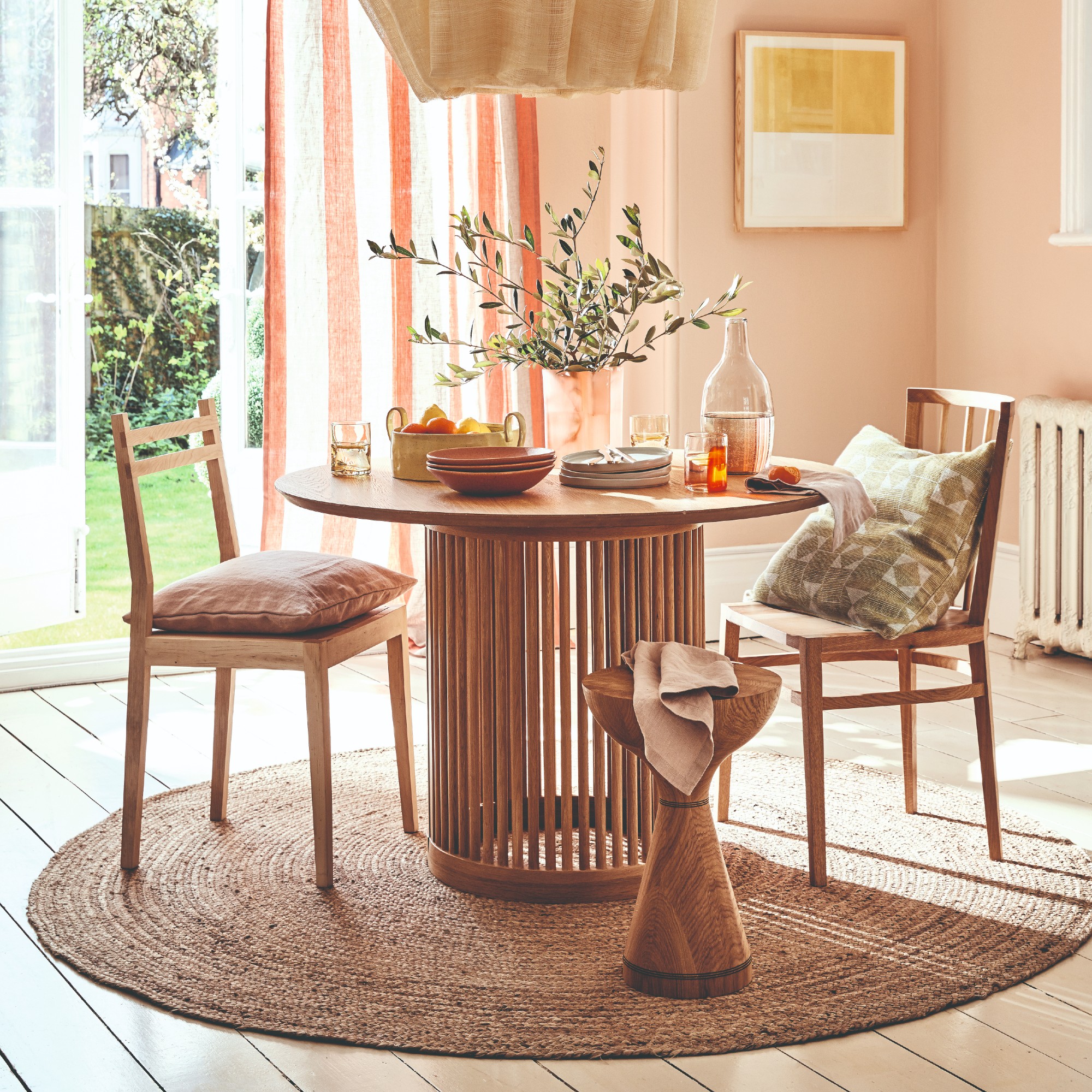
How far should the edge of a dining room rug be from the walls?
Whether you want to make a small dining room look bigger or a large dining area appear sophisticated, a well-sized rug can be of help either way. You already know how big the rug should be in relation to the table. But there is something to be considered when thinking of the dining room as a whole – the 18-inch rug rule which applies here as much as it does in the living room.
‘When positioning rugs, people should follow the 18-inch rule, a go-to in the world of interior design. For rooms large enough, this rule means leaving 18 inches of floors visible around the rugs, meaning they don’t overpower the room while providing enough coverage,’ Liam explains.
But for small dining room ideas that don’t allow 18 inches of spaces, Liam offers an alternative, ‘If you have a smaller dining room that can’t accommodate a rug of this size, I suggest following the 8-inch rule.’ This rule works just like the 18-inch method does but instead of leaving 18 inches of space between your rug and the walls, leave 8 inches instead.
The neutral colour and natural texture of jute works especially well in a dining room setting as it won't try to overpower the space or take over the focus. But a little bit extra attention to detail never hurt anybody which is why we're obsessed with the contrasting border on this Dunelm design and the very subtle and sophisticated herringbone pattern.
Ruggable rugs are perfect for the dining room because they are all washable - and we all know that spills and drops are a regular occurrence at the dinner table. This bestselling design inspired by the English garden is especially suitable for dining rooms as its multicoloured floral pattern can mask any stains before you get round to washing it. Available in multiple sizes and even a round iteration, this rug can also fit any dining space.
If you own a round dining table then opting for a round rug that mirrors the table's shape will look the best in your dining room. And we've been in love with this jute George Home design for a while now - from the crochet-like pattern to the budget-friendly price starting at £60, what's not to like?
As hosting season is almost here, this is the perfect time to update your dining room rug and opt both for the perfect size and design that will complement your space. These three are currently at the top of our wish lists – and since they all come in multiple sizes, they will be able to accommodate variously sized spaces and tables. At least now you know exactly how to go about choosing the right one for your dining area.







